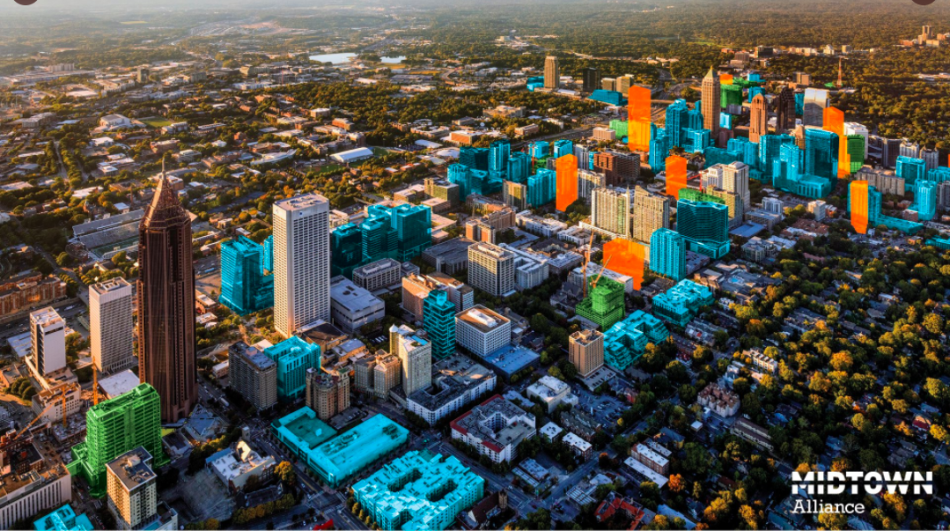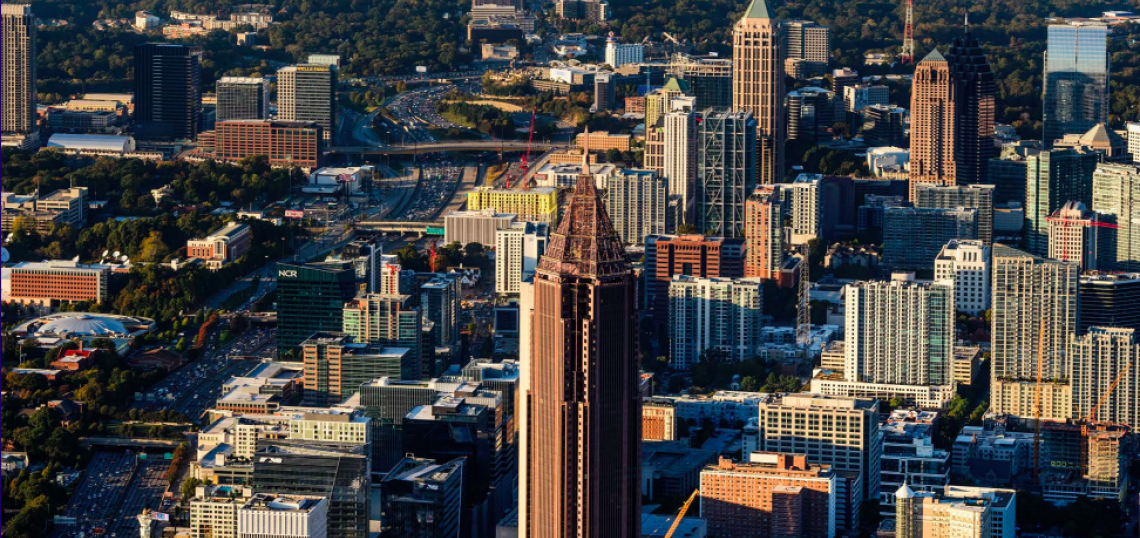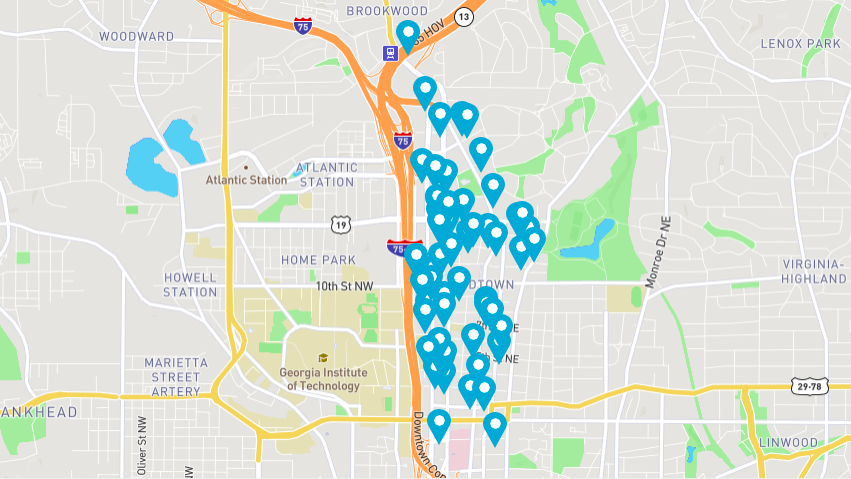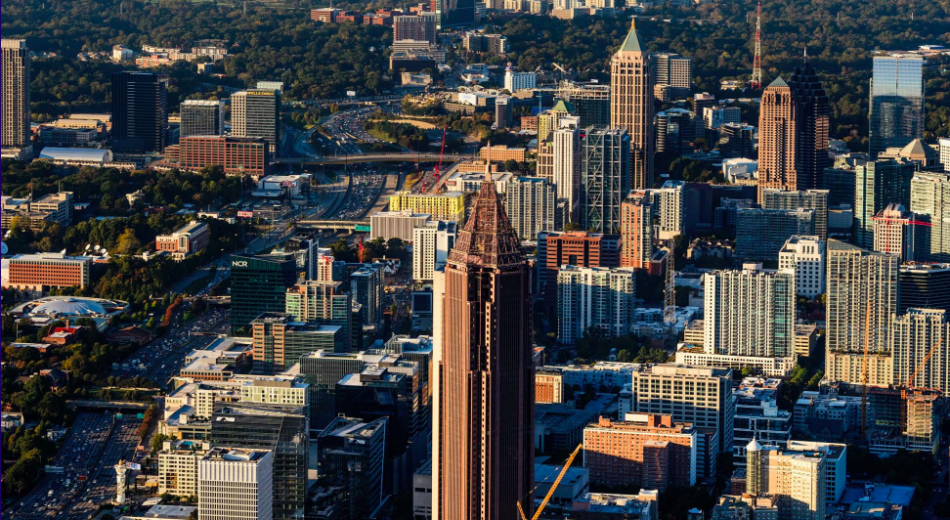Global pandemic or not, 2021 will likely go down as a banner year for Atlanta’s epicenter of urban growth.
Midtown Alliance released today a 2021 Progress Report that reflects on changes large and small—as well as supercharged development patterns—across the subdistrict’s 120 blocks, where roughly 60 major developments have delivered in the past decade alone.
Midtown’s growth has attracted national attention as a “hyper-urban” magnet for Millennials and Gen Z residents that’s packed on more apartments in the past five years than any U.S. neighborhood outside of Downtown Los Angeles, according to one recent study.
Midtown Alliance’s year-end recap supports those findings—and lends some context as to why the residential market is so volcanic right now.
 A graphic compiled by Midtown Alliance in December 2021 showing buildings delivered since roughly 2010 (blue), with others under construction (green) at the time, or in the development review process (orange) in Midtown alone. Midtown Alliance
A graphic compiled by Midtown Alliance in December 2021 showing buildings delivered since roughly 2010 (blue), with others under construction (green) at the time, or in the development review process (orange) in Midtown alone. Midtown Alliance
The nonprofit coalition of business and community leaders counts 5,172 residential units that delivered across Midtown, or went under construction, in 2021 alone.
On a related note, 4 million square feet of office space either came online or began the building process last year, too.
Both of those numbers set records for the most concurrent construction of each type in Midtown’s history, according to Midtown Alliance’s analysis.
Some other numbers—both positive and not—that jump out from the report:
Major companies including Visa, Cisco, FanDuel, Micron, and others announced in 2021 about 3,400 jobs that are planned for Midtown spaces.
And 10 more projects underwent the Midtown Development Review Committee analysis process; if realized, those would bring another 2,000 residences (give or take), 811,000 square feet of offices, and 54,000 square feet of retail space.
If Midtown felt more vibrant in 2021, there’s a statistical basis for that, per Midtown Alliance. Pedestrian counts showed a 30 percent increase through September, versus the same nine-month period in pandemic-addled 2020.
To accommodate those people not in cars, six public improvement projects moved into construction phases last year, with about 20 more (ranging from enhanced pedestrian crossings to protected bike lanes and the forthcoming Art Walk phase) in the pipeline. Another three public plazas (Arts District Plaza, Commercial Row Commons, and the upgraded 10th Street Park) were either finished or launched.
On topics not related to the built environment, Midtown Alliance reports that violent crime dipped by 8 percent compared to 2020 and has largely retuned to pre-pandemic levels. “Most of these incidents,” notes the report, “involve people that knew each other, a domestic conflict, and/or an altercation that escalated.” Two Midtown homicides were logged in all of 2021.
Total property crimes, meanwhile, did climb from 1,177 in 2020 to 1,445 last year. Auto theft and larceny from vehicles made up the vast majority (80 percent) of overall crime, the report notes.
Looking ahead, Midtown leaders expect that infrastructural changes will come faster, as the Atlanta City Council approved legislation a few weeks ago that gives Midtown Alliance, like other Community Improvement Districts, the authority to procure and then build its transportation projects.
That’s been a sticking point in the recent past.
“New progress is being made through the city and ATLDOT,” wrote Midtown Alliance heads in the report, “and Mayor [Andre] Dickens is proactively working with us and other organizations to reduce organizational drag within the city, so we can all free up resources to get more done today.”
• Recent Midtown news, discussion (Urbanize Atlanta)








